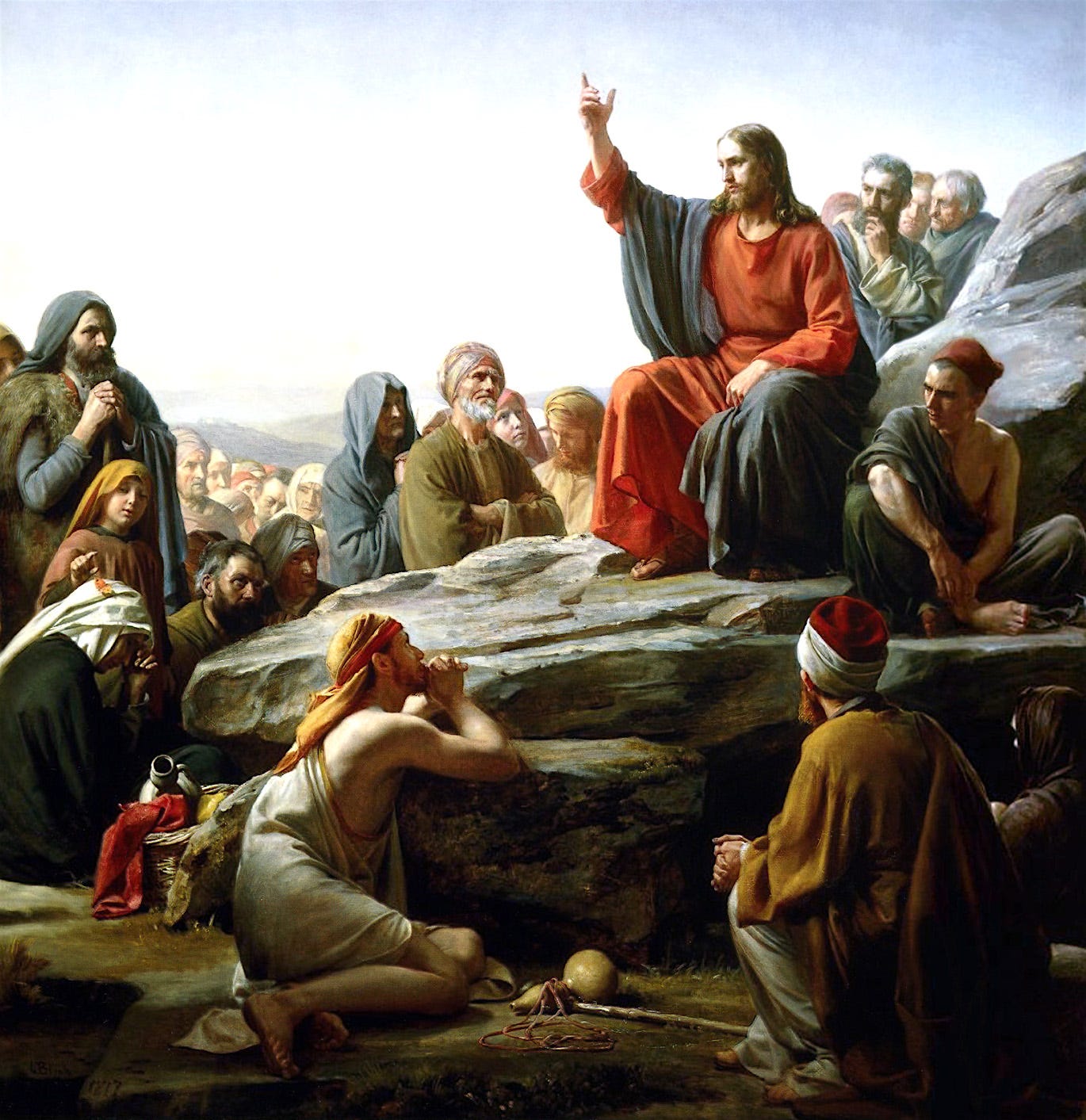"On the Road" with Jesus
Homily for the Wednesday of the 8th Week in Ordinary Time, Daily TV Mass
"The Sermon on the Mount" by Carl Bloch (1834–1890), Wikipedia
They were on the road, going up to Jerusalem, and Jesus was walking ahead of them; they were amazed, and those who followed were afraid. (Mark 10:32)
Leaving Everything Behind to Follow Jesus
In today’s Gospel, Our Lord invites us to focus on the nature of true discipleship. While on the road to Jerusalem, Jesus takes the Twelve aside and tells them - now for a third time - about His approaching betrayal, suffering, death, and resurrection.
The Twelve are portrayed as having left everything behind to follow Jesus. They are ‘on the road’ with Jesus and are following behind Him, as is proper for any disciple.
What is clear, is that the disciples certainly love Jesus, and follow Him faithfully. But it is also clear, at least at this point, that they really haven’t given up everything to follow Him. For at least some of the Twelve don’t seem to understand their proper place, as we see in the request of the brothers James and John, to be seated beside Our Lord when He enters into His eternal glory.
At the same time, the faults and failings of the disciples don’t disqualify them. At one level their example encourages us to take heart and to be confident in God’s love for us despite our own sinfulness, as we trust in His mercy and in the transforming power of His grace, despite our own weaknesses.
Discipleship in the Four Gospels
We see that like Mark, each of the other Evangelists has developed a distinctive portrait of Our Lord’s disciples.
In the Gospel of Matthew, we see that the disciples are certainly not perfect, but they do display more appropriate attitudes toward Jesus.
Luke tells the story of Jesus and the Apostles against the larger backdrop and stage of world history. He describes the mission of the earliest Church, not only in his Gospel, but in the Acts of the Apostles.
In the Gospel of John, the situation is more complex, as he describes the reactions to Jesus across a broad spectrum of attitudes and responses. These range from indifference, to rejection, to betrayal in the person of Judas, to the smooth compromise of Pontius Pilate, and all ‘who remain in the dark’.
John’s language is rather more mystical and relational as Jesus speaks in terms of ‘abiding in the light,’ and of ‘abiding with’ God, who abides with and in us through the power of the Holy Spirit.
Mark, more than the other Gospel writers, leads us to keep our focus on the person of Jesus Himself rather than the disciples. For it is Christ alone who shows us the ideal example of what it means to follow the will of God the Father.
“Thy Will Be Done”
It is Jesus and He alone who reveals to us fully what it means to follow the will of the heavenly Father wherever it may lead.
It is Jesus alone who shows us how to say:
Thy Will be Done
to Our Father in Heaven, in every circumstance of our lives.
Taken together, the writings of the New Testament show us that Our Lord calls us not only to be His disciples, servants, followers and friends, but to become a new creation in Christ. He calls us to be radically transformed to the very depths of our being, as we acquire a share in the mystery of His own nature, leading us to become Christ-like, as the lives of the Saints show us.
The call to leave everything behind and become disciples proves to be a call not only to follow, to become servants: but ultimately to be transformed and glorified by the grace of God.
In the Gospel of John (14:12), Jesus states very clearly:
Whoever believes in me will do the works I have been doing, and they will do even greater things than these, because I am going to the Father.
For ultimately:
Obedience to the will of God,
Spiritual discernment,
Humble service of God and neighbour, especially in the poor and the suffering,
A spirit of detachment from the things of this passing world.
All of these are marks of true Christian discipleship.
I invite you to view the National Catholic Broadcasting Council’s Daily TV Mass below. The Homily begins at 7:21.




